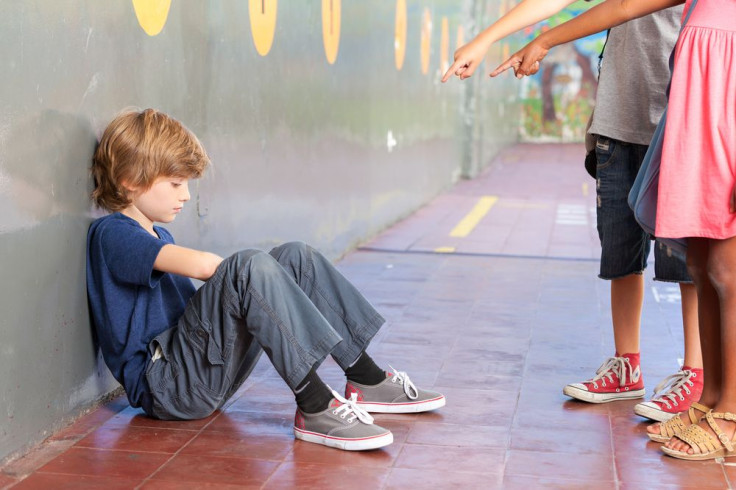Bullying Doesn't Always Win: How Victims Conquer Childhood Trauma As Adults

This month’s issue of the online journal of American Psychologist covers 40 years of comprehensive research on bullying. While the bulk of the issue focuses on the mentality and motivation of the bully, one particular study discusses the long-term implications bullying has on the victim.
The collaborative study, conducted by researchers from both the University of Saskatchewan and the University of Ottawa, covered 40 years of research on the lifetime consequences of “peer victimization,” or bullying, in order to give an accurate description of long-term implications of being the recipient of such behavior. Notably, there is no cookie cutter profile for the adult who experienced adolescent bullying, the study explains, and many factors play a role in how an individual will recover from the abuse.
Physical Consequences
Neurobiological consequences of bullying refer to how being bullied can affect the way a victim’s body reacts to stress. As explained by the authors, victims will often exhibit a hypersecretion in stress hormones. The long-term effect of this has been linked to elevated symptoms of depression and increased risk for mental health problems. This elevated stress response is linked to poorer health and difficulty learning.
To show a link between bullying and telomere erosion, the authors refer to a study in which a twin was the recipient of bullying while the other was not. Telomeres are caps at the end of your chromosomes, and their erosion is usually a natural marker of the aging process. However, in the case of adolescent bullying, this erosion begins at a significantly younger age, suggesting that the stress from being victimized literally “ages” the children.
Mental Health Consequences
According to the study, the largest area of research on victimization is how peer abuse is linked to mental health. The authors highlight how bullying is tied to increased psychiatric distress, greater emotional symptoms, increased risk of psychotic experiences, and most commonly, depression.
Being the victim of bullying can lead to decreased popularity, which can, in the long term, affect the individual’s social relationships. Bullying may also impact a child’s feeling of self-worth, a consequence which the authors noted can last for several years after the bullying has ceased.
The mental effects of bullying often materialize in the child’s behavior. For example, young victims of bullying are at greater risk for creating problems, may become bullies themselves, are also at a greater likelihood to self-harm, and in the most extreme cases are also at risk for suicidal ideation and attempted suicide.
Not All Victims Of Bullying Are The Same
Interestingly, not every bullied child will carry the scars of their experiences into adulthood. The study suggests that factors such as an individual’s personal biology can predict how well they may adjust from unpleasant childhood experiences. For example, the authors explain how individuals who possess a certain gene expression are more likely to be diagnosed with depression following a lifetime of bullying than others who shared the same experience but have a different genetic makeup.
Factors such as the timing of the victimization can also make a difference in how the child will heal from their experiences as they age. “Thus, there can be recovery from victimization if and when the experience ceases...” the authors wrote.
Other factors which play a role in whether or not an adult can heal from the scars of childhood bullying include whether or not they had a support system during the bullying and their own personal level of self-esteem.
The ultimate goal of the study, along with the four other research projects also included in the bullying special of American Psychologist, is that the investigation and evaluation of different factors which play a role in the complex bullying behavior will lead to more effective interventions and coping techniques.
Source: McDougall P, Vaillancourt T. Long-Term Adult Outcomes of Peer Victimization in Childhood and Adolescence. American Psychologist. 2015.



























